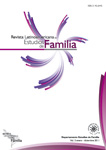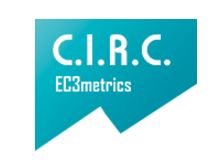Authors
Abstract
Abstract: In the frame of life course perspective, the following work analyzes the building of families (with heterosexual core) among Peruvian immigrant females who reside in the Buenos Aires Metropolitan Area (AMBA) over the last recent years. This work deals with two calendars, the first union and the birth of first child, in two generations: 1968-1977 and 1978-1987. Furthermore, these calendars are analyzed among the female population in the country of origin in order to compare immigrant with women who remain in Peru, and therefore be able to speculate about the effects of migration on family formation.
Two data sources are used: a) The Peruvian Migration and Gender Survey 2007 that was carried out in the AMBA, b) The Demographic and Family Health Survey 2007 that was carried out in Peru. Among the main results, it can be highlighted that immigrants who make part of the younger generation are forming their families at an earlier age than members of the older one. Such fact seems to be opposite to what is taking place in Peru, where one can find evidence of a delay in the age at which women assume family roles. It’s suggested that migratory experience analyzed became a turning point in the life trajectory of the respondents, which is especially true for the youngest generation.
References
Ariza, Marina. 2000. Ya no soy la que dejé atrás… Mujeres migrantes en República Dominicana. México:Instituto de Investigaciones Sociales, Editorial Plaza y Valdés.
Billari, Francesco. 2004. Becoming an Adult in Europe: A Macro (/Micro)-Demographic Perspective. Demographic Research Special Collection 3: 15-44.
Bilsborrow, Richard, Hugo Graeme, Amarjit Oberai y Hania Zlotnik. 1997. International Migration Statistics: Guidelines for Improving Data Collection Systems. Ginebra: International Labour Office.
Binstock, Georgina. 2010. Tendencias sobre la convivencia, matrimonio y maternidad en áreas urbanas de Argentina. Revista Latinoamericana de Población Año 3, No. 6: 129-146.
Cerrutti, Marcela. 2005. La migración peruana a la Ciudad de Buenos Aires. Población de Buenos Aires Año 2, No. 2: 7-28.
Cicchelli, Vicenzo. 2001. Les jeunes adultes comme objet théorique. Recherches et previsions 65: 5-18.
Ciganda, Daniel y Julieta Bengochea. 2010. Internal Migration and the Transitions to Adulthood in Uruguay (mimeo). Ponencia presentada en Seminar on Youth Migration and Transitions to Adulthood in Developing Countries, diciembre 8-10, Rio de Janeiro, Brazil.
Coubés, Marie-Laure, María Eugenia Zavala de Cosio y René Zenteno. 2004. Cambio demográfico y social en el México del siglo XX. Una perspectiva de historia de vida. México: El Colegio de la Frontera Norte.
Courgeau, Daniel. 1985. Interaction between spatial mobility, family and career life-cycle: a French survey. European Sociological Review 1: 139-162.
De los Ríos, Juan y Carlos Rueda. 2005. ¿Por qué migran los peruanos al exterior? Economía y Sociedad 58: 7-14.
Echarri Cánovas, Carlos y Julieta Pérez Amador. 2007. En tránsito hacia la adultez: eventos en el curso de vida de los jóvenes en México.
Estudios Demográficos y Urbanos 22, No. 1: 43-77.
Elder, Glen y Monica Kirkpatrick Johnson. 2002. The Life Course and Aging: Challenges, Lessons, and New Directions. En Invitation to the life course: Toward new understandings of later life, ed. Richard A.
Settersten Jr., 48-91. Chapel Hill: University of North Carolina.
Ferraris, Sabrina. 2010. Trayectorias vitales y gradación de la edad: transiciones a la adultez de mujeres del Área Metropolitana de Buenos Aires (AMBA). Ponencia presentada en Seminario Internacional de Población y Sociedad en América Latina 2010, junio 9-11, Salta, Argentina.
Hogan, Dennis. 1981. Transitions and social change: the early lives of American men, http://www.
popline.org/docs (Recuperado el 10 de enero de 2011).
INEI –Instituto Nacional de Estadística e Informática–. 2008. Ficha técnica de la Encuesta Demográfica y de Salud Familiar: ENDES Continua 2007, http://www.inei.gob.pe/ (Recuperado el 10 de enero de 2011).
Jelin, Elizabeth. 1998. PAN y afectos: La transformación de las familias. Buenos Aires: Fondo de Cultura Económica.
Kulu, Hill y Nadja Milewski. 2007. Family change and migration in the life course: An introduction. Demographic Research 17: 567-590.
Marini, Margaret. 1984. Age and sequencing norms in the transition to adulthood. Social Forces 63, No. 1: 229-244.
Martínez González, Miguel Angel y Jokin de Irala Estévez. 2005. Análisis de supervivencia y análisis multivariado. En Manual de medicina basada en la evidencia, eds. Francisco López-Jiménez y Gregorio Tomás Obrador Vera, 191-211. México: Manual Moderno.
Martínez Pizarro, Jorge. 2000. Migración internacional de jóvenes latinoamericanos y caribeños: protagonismo y vulnerabilidad. Serie Población y Desarrollo 3: 1-59.
Moreno Mínguez, Almudena. 2008. Rasgos característicos de la transición a la vida adulta de los jóvenes españoles en el marco comparado europeo. Revista Pensamiento Iberoamericano 76: 17-46.
Mortimer, Jeylan y Michael Shanahan. 2003. Handbook of life course. New York: Kluwer Academic/Plenum Publishers.
Musick, Kelly y Larry Bumpass. 1999. How do prior experiences in the family affect transitions to adulthood. En Transitions to Adulthood in a Changing Economy: No work, no family, no future?, eds. Allan Booth, Ann Crouter y Michael Shanahan, 109-117. Westport, Connecticut: Praeger Publishers.
Oliveira, Orlandina de y Minor Mora Salas. 2008. Desigualdades sociales y transición a la adultez en el México contemporáneo. Papeles de Población 57: 117-152.
Parrado, Emilio. 1998. Marriage and international migration: timing and ordering of life course transitions among men in western Mexico. Ponencia presentada en Seminar on Men, Family Formation and Reproduction, IUSSP, mayo 13-15, Buenos Aires, Argentina.
Pries, Ludger. 1996. ¿Institucionalización o desinstitucionalización del curso de vida?: biografía y sociedad como un enfoque integrativo e interdisciplinario. Estudios demográficos y urbanos 11, No. 2:395-417.
Rosas, Carolina. 2008. Varones al son de la migración. Migración internacional y masculinidades de Veracruz a Chicago. México: El Colegio de México, A.C.
________. 2010. Implicaciones mutuas entre el género y la migración. Mujeres y varones peruanos arribados a Buenos Aires entre 1990 y 2003. Buenos Aires: Editorial Universitaria de Buenos Aires, EUDEBA.
Rumbaut, Ruben. 2005. Turning points in the transition to adulthood: Determinants of educational attainment, incarceration, and early childbearing among children of immigrants. Ethnic and Racial Studies 28, No. 6: 1041-1086.
Singley, Susan y Nancy Landale. 1998. Incorporating origin and process in migration fertility frameworks: the case of Puerto Rican women. Social Forces 76, No. 4: 1437-1464.
Solís, Patricio, Marcela Cerrutti, Silvia Giorguli, Martín Benavides y Georgina Binstock. 2008. Patrones y diferencias en la transición escuela-trabajo en Buenos Aires, Lima y la Ciudad de México. Revista Latinoamericana de Población Año 1, No. 2: 127-146.
Tuirán, Rodolfo. 1999. Dominios institucionales y trayectorias de vida en México. En México diverso y desigual. Enfoques demográficos, coord. Beatriz Figueroa Campos, 207-241. México: El Colegio de México.

 PDF (Español)
PDF (Español)
 FLIP
FLIP





















